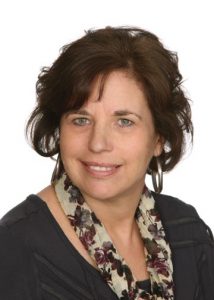
Building A Full Life In The Jewish Community
I previously blogged about my son Benji’s life-changing bar mitzvah. Diagnosed with an autism spectrum disorder at the age of two and a half, his special perseverative interest has always been related to all things Jewish, with a specific emphasis on Jewish ritual, customs and traditions. Parents of his classmates at Akiva Academy, the Calgary Orthodox Hebrew Day School he attended for his elementary grades, used to ask if he developed this interest from attending Akiva. Likewise, parents of his cabin bunkmates in the Tikvah Program at Camp Ramah in Canada, have also asked if this passion came from participating in Camp Ramah. To both questions my answer is an unequivocal no. The truth is, he was born with a Jewish soul.
Flash forward almost seven years to the present day. Benji is now a much sought after professional ba’al koreh (Torah chanter), regularly performing in four different congregations in Calgary. He has also lained (read Torah) at the Orthodox synagogue in Edmonton and at Camp Ramah in Canada in the Muskokas of Ontario. How has he accomplished so much to reach this pinnacle?
At Akiva, Benji was fully included in a comprehensive, dual curriculum program of study. The school offered a very tolerant and accommodating environment. His class included typical children, those with learning disabilities as well as those who were gifted – all in the same classroom. While he always had a full-time aide, the teachers were skilled at pairing him with the brightest students in the class for teamwork assignments. This way he was not isolated by working solely with his aide but was an integral, full member of the classroom. At the same time, his peer tutors were learning tolerance and patience, and gaining invaluable leadership skills. Akiva was unique within Calgary’s education system and likely equally unique within the Jewish world as well.
They say that part-time employment opportunities through high school provide good prognoses for an independent life for those with developmental disabilities. At the age of 12, the proprietor of the kosher bakery approached me to offer Benji a part-time job stacking the challah racks for an hour on Friday mornings. At the time, actually thinking he was joking, I asked if he would pay Benji. I had recently attended a parent support group meeting where I heard from parents of adults with disabilities that their children were offered volunteer opportunities but that no one ever wanted to pay them for their work. Having been recently politicized on this issue, I advocated for my son and he obtained his first paid job at the age of 12 – something many typical same-age peers do not achieve.

At Chabad-Lubavitch’s citywide Chanukah celebration, Calgary City Hall, November 2013. L-R: Calgary Mayor Naheed Nenshi, Rabbi Menachem Matusof, Benji Weizman, Ben and Diane Docktor, Rebbetzin Rochel Matusof (credit: Sandra Morton Weizman)
When we wanted to increase Benji’s independence in the community, we were keen to find a place where he could walk independently and practice his newly learned skills of using a cell phone to call and text. I approached the rabbi at Chabad House, located four blocks from our home, and arranged for a part-time volunteer job for Benji. His time was quickly put to good use, stuffing envelopes, decorating charity boxes and rearranging furniture for special events. We added onto this work placement a subsequent half-hour private lesson in Talmud with one of the Chabad rabbis.
He has also benefitted from his inclusion in Friendship Circle. His two “friends,” university students a little older than himself, take him to lift weights, swim and eat lunch at the Jewish Community Centre a couple times a month. People, unaware that this outing with Benji was through Friendship Circle, would comment to me on having observed Benji with his two buddies, on how well he was doing. The underlying message was that if these fellows went on outings with him, then he must be doing well.
Of course, if you observe adolescents or adults with developmental disabilities in the community, with whom do you see them? With their family, a support worker, or an organized group of individuals with disabilities and support staff. If they are higher functioning, you may also see them by themselves. However, it is very rare to see them with typical peers. Friendship Circle not only provides benefits to Benji and to his two “friends”; it also provides an opportunity for the entire community to shift its perception of people with disabilities.
In 2013, Benji achieved his apotheosis when he was honored by Chabad-Lubavitch Alberta to light the menorah with the Mayor of Calgary at the City Hall, and to recite the blessings in front of a crowd of 500-plus, in the city-wide Chanukah celebration that was televised and streamed live on the Internet.
This year Benji is participating in a research study for young adults with ASD. Part of the requirements include conducting a neuropsychological assessment. Part of the purpose of this assessment is to determine if the individuals have realistic understanding and goals for their future. Watching through a one-way observation window, I heard the psychologist ask Benji where he would like to live eventually, to which he responded “New York.” I asked him afterwards why he had stated that he wanted to move to New York, considering that he has never been there and doesn’t know anyone there. He answered, “Because there’s a lot of synagogues there.” Had the psychologist directed her line of questioning more pointedly, she would have learned that if there are a lot of synagogues there, there is also ample opportunity for him to earn a livelihood as a Torah reader. Perhaps his own understanding of his future potential is not so unrealistic after all.
About the author Sandra Morton Weizman chairs the Inclusion Task Force for the Calgary Jewish Federation in Calgary, Alberta, Canada. She is a Museum and Heritage consultant and the mother of two adult children, one of whom has an autism spectrum disorder.
Stay Included
To stay up to date on our most recent advocacy efforts, events and exciting developments, subscribe to our newsletter and blog!



















